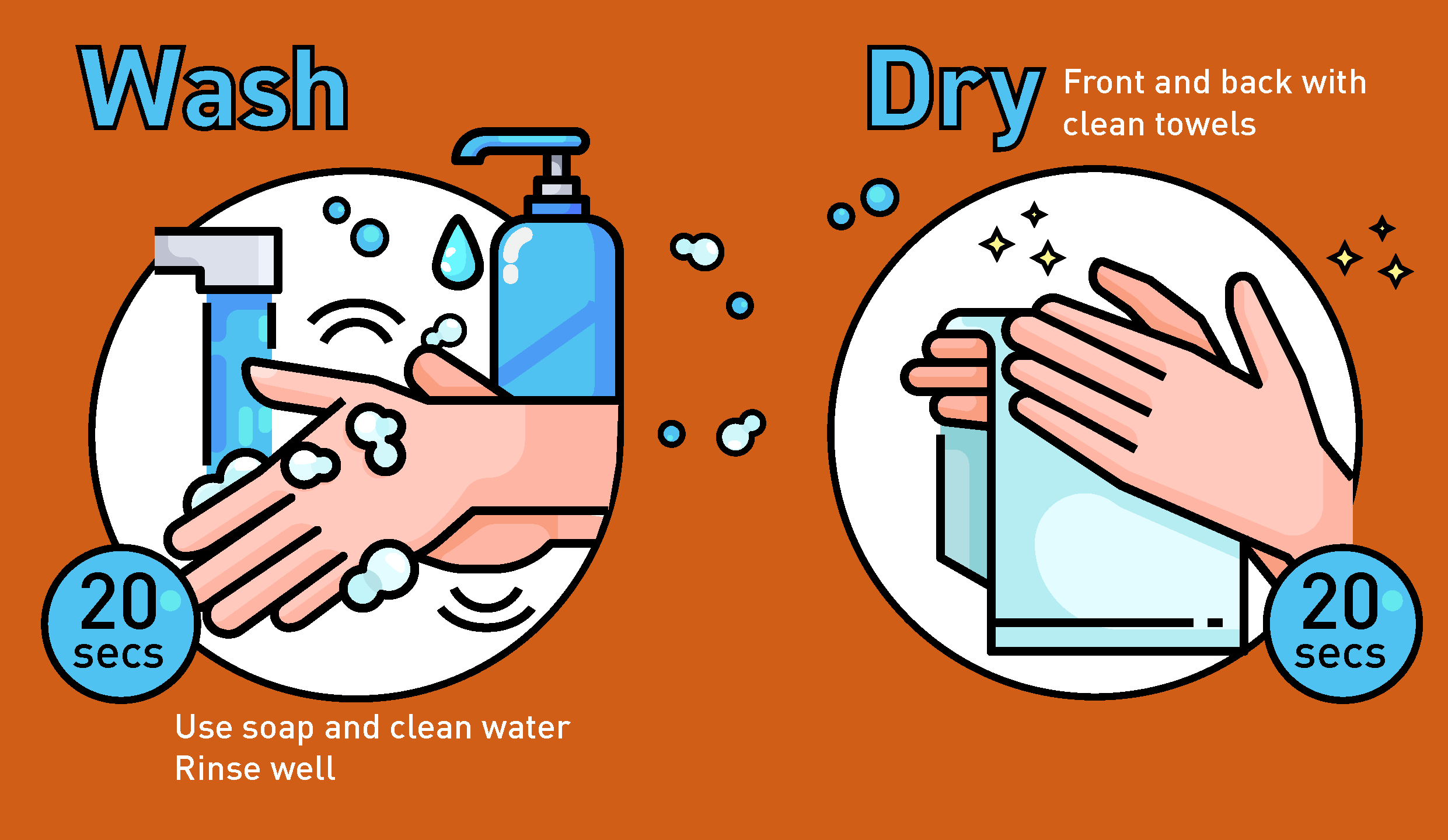When to wash your hands
Handwashing is one of the best ways to prevent foodborne illness. Washing them before making or eating food helps prevent germs spreading to your food.
You should also wash your hands after:
- handling raw meat and poultry (like chicken)
- going to the toilet or changing nappies
- sneezing, coughing, or blowing your nose
- tending to someone who is sick
- touching pets or animals
- gardening
- any other activities that make your hands dirty.
How to wash your hands

- Wash your hands for 20 seconds using clean running water and soap.
- Wash palms, wrists, back of hands, between fingers, thumbs and under nails.
- Rinse then dry your hands for 20 seconds using a clean dry towel or paper towel.
Using hand sanitisers
Hand sanitisers are not as effective as soap and water for removing germs and harmful chemicals.
But if hand sanitiser is all you have available, make sure it has at least 60 percent alcohol.
Rub it into your hands and fingers until they are dry.
Find out more
How to wash your hands information card [PDF, 213 KB]
Who to contact
If you have questions about food safety at home, email info@mpi.govt.nz








